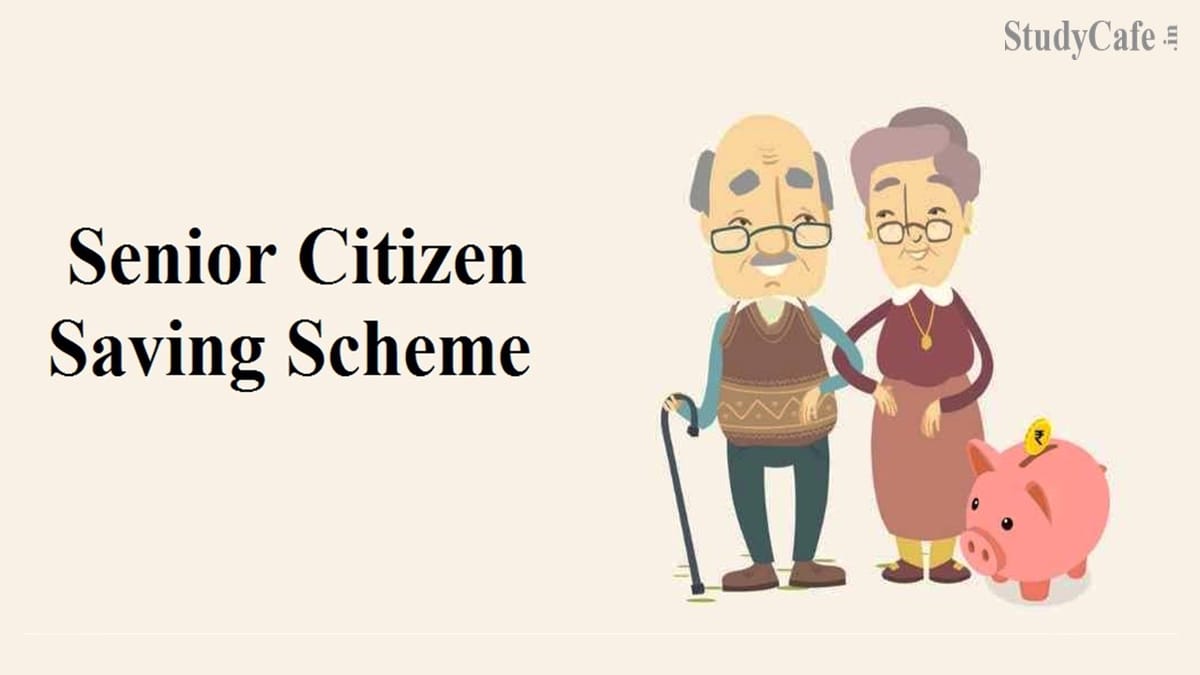Deepshikha | May 10, 2022 |

All About Senior Citizen Saving Scheme
In financial matters, the Indian government is highly favorable to senior citizens, providing them with not only higher tax slabs but also more interest on government deposits. The Elderly Citizen Saving Scheme (SCSS), a deposit scheme created by the Indian government specifically for the benefit of senior citizens, is detailed in detail below.
Any Post Office in India can start a Senior Citizen Savings Scheme Deposit. Previously, these deposits could only be made at Post Offices, but the government has now enabled them to be made at specific Nationalized and Private Bank locations. Allowing nationalized and private banks to allow senior citizen savings scheme deposits will increase reach and accessibility.
An application in Form A, coupled with the amount of deposit as per the pay-in-slip in Form D, can be sent to the senior citizen savings scheme. Senior Citizen Saving Scheme Account can only be opened by the individuals who fall in any of the below-mentioned categories:
The person can open a single account or a joint account with his or her spouse. On the date of account opening, the spouse may or may not be a senior citizen. Only the age of the first application will be taken into account when opening a senior citizen savings account.
By submitting an application in Form C at the time of account opening or at any time before account closure, the depositor can nominate anyone.
NRIs and HUFs are specifically excluded from the scheme’s advantages and hence are not eligible to open a Senior Citizen Savings Scheme account.
The Government of India sets the interest rate on Senior Citizen Saving Schemes, and it changes every year. For the first quarter of the fiscal year 2016-17, the interest rate for Senior Citizen Saving Scheme is 8.6% p.a.
Although the interest rate on a senior citizen savings scheme is nearly identical to the interest offered by banks on fixed deposits, the added benefit is that interest on senior citizen savings schemes is paid quarterly rather than yearly.
So, if we look at the effective annual interest rate on the Senior Citizen Saving Scheme, it’s around 9.5%.
SCSS interest is not tax-free, and tax is due according to the Income Tax Slab Rates. Furthermore, if the interest paid during the year exceeds Rs. 10,000, TDS on Interest at 10% would be deducted.
The Senior Citizen Saving Scheme Rules, 2004 control the SCSS Deposit Scheme, which provides that each account can only have one deposit, which must be in multiples of Rs. 1000. As a result, the minimum deposit is Rs. 1000. The maximum deposit amount is Rs 15 lakh.
The maximum amount that can be put into a senior citizen savings scheme (SCSS) is limited to the person’s retirement benefits or Rs. 15 lakh (whichever is lower). Section 80C allows the money placed in SCSS to be claimed as tax-deductible.
Although each account can only have one deposit, a person can open many accounts as opposed to the PPF, which only allows one account per person.
The Senior Citizen Saving Scheme (SCSS) has a 5-year term, and the amount in the SCSS Deposit can be withdrawn at any time between the date of account opening and maturity by applying Form E together with the passbook.
SCSS Deposits can be extended for another three years if an application in Form B is submitted within one year of the maturity date. If an application for an extension is submitted within one year of the maturity date, the extension will begin on the maturity date, not the date of application filing.
The account will be deemed as closed if the depositor does not shut the account on maturity or requests an extension within one year. If the account is closed and the funds have not been withdrawn, interest on the matured deposit will be paid at the rate applicable to Post Office Savings Accounts.
If the depositor dies before maturity, the account will be closed and the deposit will be repaid, along with interest, if an application in Form F is submitted. If the account is a joint one or the spouse is the sole nominee, the spouse has the option to keep it open or close it.
In case of any Doubt regarding Membership you can mail us at contact@studycafe.in
Join Studycafe's WhatsApp Group or Telegram Channel for Latest Updates on Government Job, Sarkari Naukri, Private Jobs, Income Tax, GST, Companies Act, Judgements and CA, CS, ICWA, and MUCH MORE!"